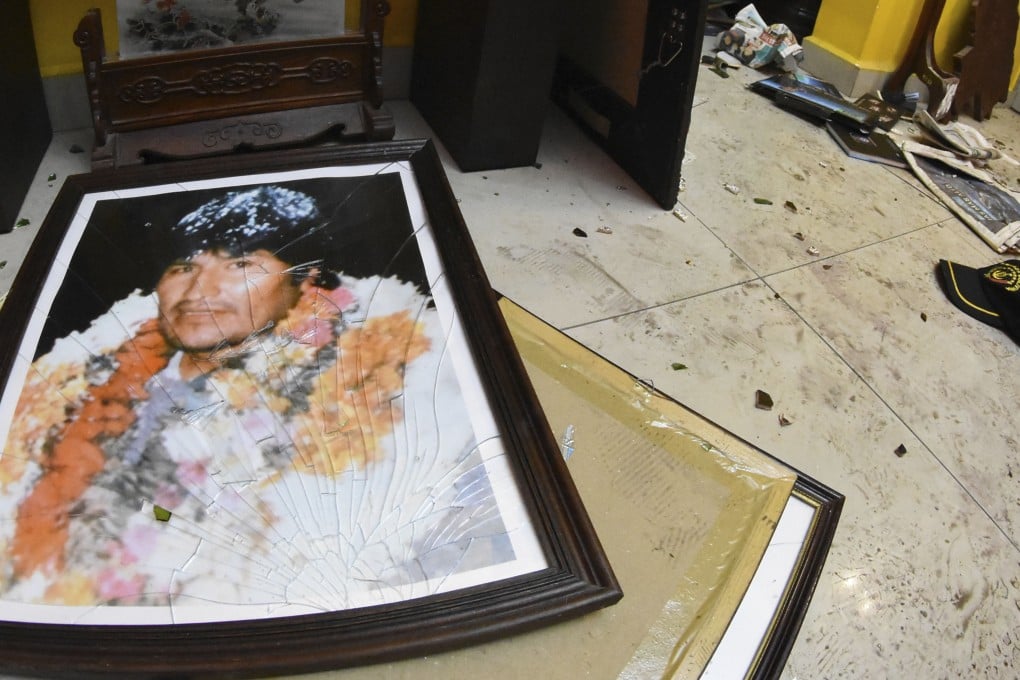Bolivians celebrate after leader Evo Morales heeds military’s call to resign, leaving presidency in limbo
- The military chief urged the president to step down to ease political turmoil and violent protests on the streets triggered by last month’s election
- Before Morales finished his statement, people began honking their car horns and taking to the streets to celebrate, waving flags and setting off fireworks

Bolivia entered a sudden era of political uncertainty on Monday as President Evo Morales, pushed by the military and weeks of massive protests, resigned after nearly 14 years in power and seemingly every person constitutionally in line for the job quit as well.
Crowds of jubilant foes of the socialist leader celebrated in the streets with honking horns and fireworks after Morales’s announcement Sunday, treating as a triumph of democracy the ouster of a man who pushed aside presidential term limits and claimed victory in a widely questioned October election.
“We are celebrating that Bolivia is free,” said one demonstrator near the presidential palace.
But others – including Morales himself – saw it as a return to the bleak era of coups d’etat overseen by Latin American militaries that long dominated the region. Morales stepped aside only after the military chief, General Williams Kaliman, called for him to quit to allow peace and stability.

Morales earlier in the day had already accepted calls for a new election by an Organisation of American States team that found a “heap of observed irregularities” in the October 20 election, which showed Morales getting just enough votes to avoid a run-off against a united opposition.